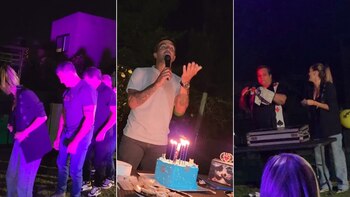"Protecting clean athletes is an absolute priority for the entire Olympic Movement." So beginsthe Declaration of the 5th Olympic Summit which took place yesterday, October 8, 2016, inLausanne. However, the Declaration is not sufficient to achieve that aspiration.
Said Joseph de Pencier, CEO of the Institute of National Anti-Doping Organisations: "TheInternational Olympic Committee’s track record since the release of the McLaren Report hasonly confounded the global anti-doping system. With this latest Declaration, the IOC onlycomes part way to restoring its credibility for the clean athletes of the world."
Constructive principles are stated in the Declaration, such as the requirement for anti-doping tobe independent, enhanced funding for the World Anti-Doping Agency (WADA), improvedsupport for whistleblowers, WADA to maintain and enhance its regulatory role withstrengthened governance, more clarity in anti-doping organisation roles and responsibilities,and more standardised testing among IFs to produce better anti-doping equality for athletesaround the world. All this is encouraging, even if the devil will be in the detail.
But the positive aspects of the Declaration are overshadowed by several troubling omissions,including:
o Nothing explicit about state-sponsored doping in Russia, or about the moral responsibilityof the IOC to push Russian sport and sport leaders to necessary cultural change in thatcountry for genuinely protecting clean sport.
o Nothing acknowledging the findings of the McLaren Report as demonstrable facts and notmere allegations.
o Nothing deploring the Fancy Bear cyber-attacks (which of course started against the IOC’sRio ADAMS account and not against WADA) and the illegal abuse of the privacy of cleanathletes.
Moreover, further principles contained in the Declaration will need to be clarified to be useful.For example:
o "A new anti-doping testing authority within the framework of WADA to be established."
This must mean under WADA’s regulatory jurisdiction, which should go withoutsaying. However, some will see this as a call for WADA to operate a new testing unit. But it would be a clear conflict of interest for WADA to do so and then regulate its own operations.
o "The anti-doping system to be more independent from national interests. WADA to begiven stronger authority over National Anti-Doping Organisations (NADOs)."
WADA already has extensive authority to oversee NADOs, as well as InternationalFederation and Major Event Organisation anti- doping programmes, when it comesto compliance with the World Anti-Doping Code (Code). If what the IOC means isthat WADA should have the authority to deal with state-sponsored doping, and howit corrupts a national anti-doping program, and what the Russian state did to theRussian NADO, then iNADO agrees whole-heartedly. But why not say so to make itclear that WADA should have this additional jurisdiction? Why not propose specificchanges to the Code to make this a reality?
So the IOC has taken some steps in the right direction – but other steps are needed urgently. If,as expected, the second report from Professor Richard McLaren details considerably moreconclusive evidence of the corruption of Russian anti-doping, then it will be even clearer thatthe IOC has much more to do to protect clean athletes "as an absolute priority."
iNADO is the international member association of NADOs. NADOs have the sole andunequivocal mandate to protect clean athletes, without conflicting responsibilities such aspromoting sport. iNADO's 59 Members represent all Olympic Regions and conduct the majorityof anti-doping work world-wide each year.
For more information,please contact:
Joseph de Pencier
CEO
jdep@inado.org
Tel: +49 (0)175 829 6704
Email: info@inado.org
20 Years at #1: Your best source of news about the Olympics iswww.aroundtherings.com, for subscribers only
Últimas Noticias
Utah’s Olympic venues an integral part of the equation as Salt Lake City seeks a Winter Games encore

IOC president tells Olympic Movement “we will again have safe and secure Olympic Games” in Beijing

Boxing’s place in the Olympics remains in peril as IOC still unhappy with the state of AIBA’s reform efforts

IOC president details Olympic community efforts to get Afghans out of danger after Taliban return to power

North Korea suspended by IOC for failing to participate in Tokyo though its athletes could still take part in Beijing 2022




